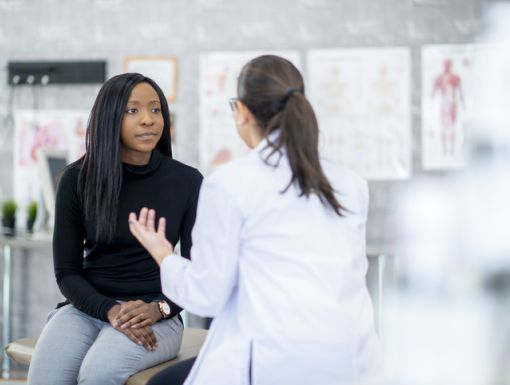
Does Having a Polyp Mean I Have Colon Cancer?
A polyp is a growth inside the colon or rectum that can eventually turn into cancer. Having a polyp does not mean you have colon cancer.
However, removing a pre-cancerous polyp can reduce the chance of cancer development. If a polyp is seen during a colonoscopy and removed, it usually prevents cancer and prevents the need for surgery.
Colorectal cancer is the third most commonly diagnosed form of cancer in men and women in the United States. In 2026, the American Cancer Society estimates around 108,860 new cases of colon cancer and around 49,990 new rectal cancer cases will be diagnosed.
Many cases of colorectal cancer can be prevented by doing things like adopting healthy lifestyle habits and regular screenings.
Colonoscopy is considered the gold standard for colorectal cancer screening. It allows a doctor to identify and remove pre-cancerous polyps (growths) in the lining of the colon and rectum before they turn into cancer.
How serious is a pre-cancerous polyp?
Pre-cancerous polyps are serious because they can develop into colon cancer.
Removing pre-cancerous polyps through a colonoscopy helps prevent deaths from colorectal cancer. This makes colonoscopy the only cancer screening test that is also preventative.
If cancer is found within a polyp or if a cancerous mass is discovered that cannot be removed during a colonoscopy, surgery may be necessary to remove that portion of the colon or rectum. Even if surgery is required, colorectal cancer is often still curable. This type of surgery is frequently performed using minimally invasive techniques, such as robotic surgery.
How are cancerous polyps diagnosed?
As most colorectal cancer develops from pre-cancerous polyps that start in the colon and rectum lining, there are screening methods used to detect and remove polyps before they become cancerous.
Screening procedures, like a colonoscopy, have been proven in large population studies to prevent colorectal cancer development and allow already present colorectal cancers to be discovered at much earlier stages.
Stool-based tests have been developed for those unable to have a colonoscopy to detect the presence of pre-cancerous and cancerous lesions by sending a sample of stool off to be tested in a lab. If one of these stool-based tests comes back positive, then a colonoscopy is usually the next step. Examples of these stool tests include FIT tests and Cologuard.
Are younger people getting colorectal cancer?
The fastest-growing demographic developing colorectal cancer is between the ages of 40 to 50. Around 11% of all colorectal cancer is diagnosed in people under 50. While the exact reasons are not fully understood, potential contributing factors include lifestyle changes like diet high in processed foods, physical inactivity, obesity and possible alterations in gut microbiome.
Ochsner MD Anderson Cancer Center recommends talking with your doctor about testing options at age 45. High-risk groups include:
- People with inflammatory bowel disease, including ulcerative colitis and Crohn’s disease
- People with a family history of colorectal cancer and a family history of pre-cancerous polyps
People who fall into these groups should start colorectal cancer screenings earlier than the general population, before age 45. Additionally, those who have a genetic predisposition to colorectal cancer, like Lynch syndrome and familial adenomatous polyposis (FAP), should start screenings earlier.
Why is colorectal cancer screening important?
Colorectal cancer is often curable if it is detected in its earliest stages. More than 90% of patients with early-stage cancer in the colon or rectum that does not spread are alive five years after diagnosis. Even colorectal cancer cases that are not curable are usually treatable.
Most cases of early colorectal cancer usually have no symptoms. It is important to screen before symptoms start to prevent cancer by polyp removal or catch it early enough to cure it.
The colonoscopy procedure is not painful, and the patient is sedated to minimize any discomfort. While the most feared part of the procedure is the bowel preparation beforehand, this is the most crucial part, as it allows the doctor to see the lining of the colon and rectum clearly and helps detect and remove even small polyps that can grow into cancer.
What can I do to prevent colon cancer?
Researchers have found a connection between certain risk factors and an increased likelihood of cancer and polyp development.
People may be able to prevent colorectal cancer by modifying their diet and lifestyle. Regular exercise, eating a low-fat, high-fiber diet with lots of fruits and vegetables, and avoiding tobacco and smoking all lower your risk of developing colorectal cancer.
Learn more about Matthew Giglia, MD, or schedule an appointment.



